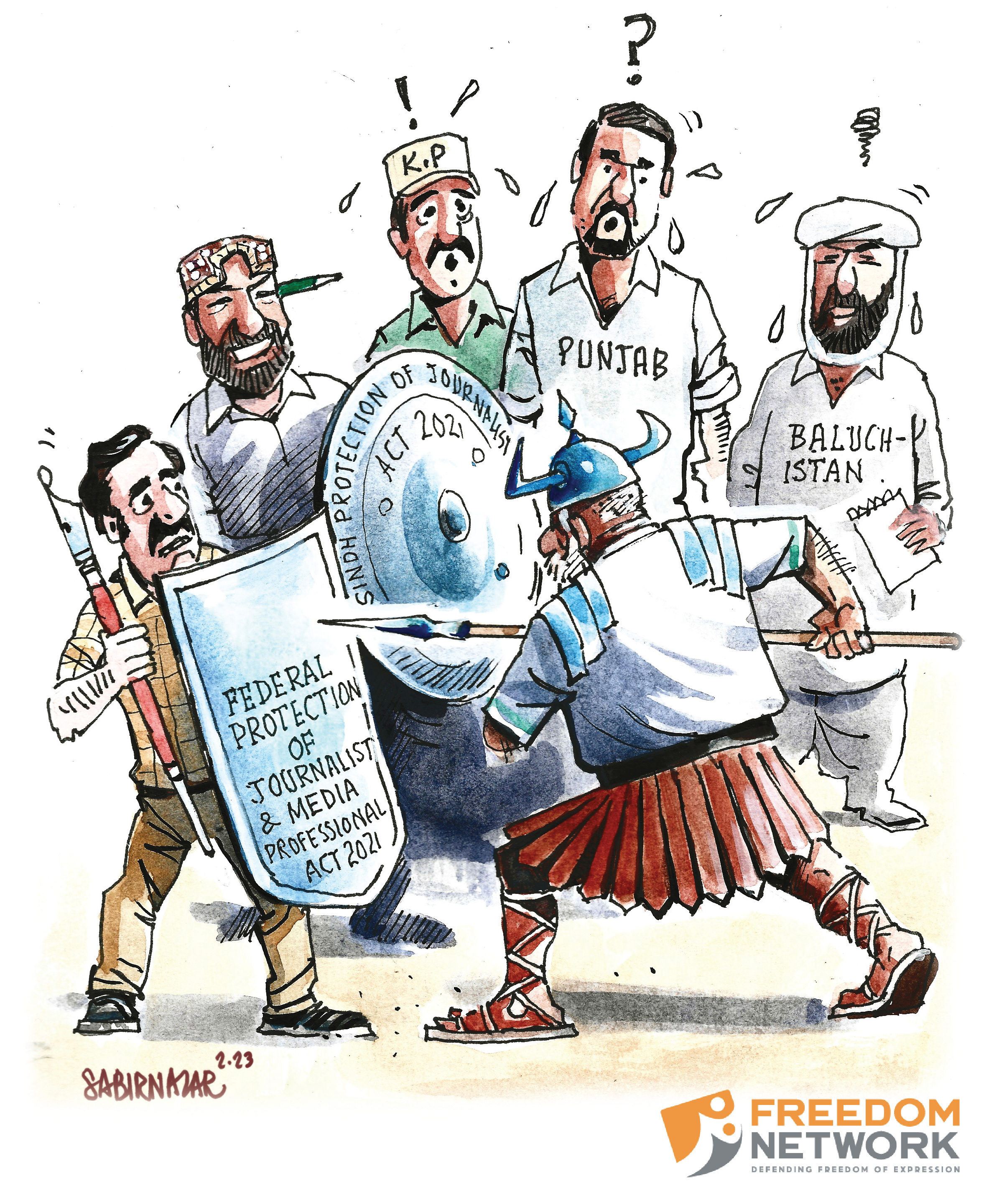A rare debate on media ethics has erupted within the media sector in Pakistan based on a controversy over privileged video reporting access to a high-profile event held by the apex court of the country on December 11, 2013.
In what’s being termed as the “exclusive video controversy”, competing TV channels and publishing houses are up in arms against each other with raucous complaints over unfair means of access to a public event by only one media group and criticism by its competitors that claimed exclusivity is antithetical to the basic principles of access to information to all media.
It is perhaps for the first time that private TV channels in Pakistan are caught in an passionate debate over whether the act of Geo News channel getting exclusive footage of the full court reference honoring the retired Chief Justice of Pakistan Chaudhry Iftikhar Muhammad on December 11, 2013 in the premises of the Supreme Court of Pakistan building in Islamabad was ethical or otherwise.
“From an impartial perspective, we see the problem lies with the Supreme Court more than the channel having obtained exclusive footage to an event that all media had been invited to,” Freedom Network [FN], Pakistan’s first media watchdog organization, said in a statement issued on December 12, 2013, joining the debate on media ethics.
—————————————————————————————————————————–
LATEST:
New Chief Justice of Supreme Court Justice Tassaduq Hussain Jillani ordered probe to determine how the video was leaked on December 11, 2013, through a maiden suo moto action he took minutes after he was administered oath on December 12, 2013.
——————————————————————————————————————————-
“If the Supreme Court deliberately favored one TV channel over others, this amounts to syndicalism. The Supreme Court is a constitutional body and has to treat all parties equally and fairly as the principles of justice demand,” FN argued.
“The apex court is not a corporate body that can grant exclusive filming rights to one media competitor for an event to which all media have been invited. This approach smacks of favoritism, and harms the elements of fair, objective, balanced and ethical reporting,” FN said in its analysis of the situation.
Eminent lawyer Athar Minallah speaking on the Hamid Mir-hosted “Capital Talk” program of Geo News on the evening of December 11, 2013, appeared hurt by the controversy and pointed to the ethical responsibility that a journalist or a media house is supposed to display.
Express Group, one of the youngest and largest media groups in Pakistan, led the chorus of voices against what they said was unfair and undue advantage of media coverage accorded to rival Geo News channel by allowing it to film exclusive footage of the high-profile public event suggesting that the former chief justice treating Geo News the channel “differently” in return for the alleged favor of “friendly coverage.”
Details of the controversy will start settling only when the Supreme Court registrar completes a promised investigation into the “exclusive video controversy” after being forced to respond when journalists from all media groups other than Geo News and its parent company covering the Supreme Court beat “boycotted” the dinner hosted for the departing chief justice the same day.
Dawn newspaper reported that television cameras were usually not allowed inside a courtroom, but pointed out that December 11, 2013 was a surprising exception. During the full-court reference for the outgoing chief justice which was held in the packed-to-capacity Courtroom No. 1, a television camera was spotted in the gallery of the courtroom recording the entire event. It reported that after the ceremony, journalists including the print media representatives rushed to the ceremony hall of the apex court to have a chat with the chief justice, judges and members of the bar.
“In the meanwhile, a reporter of a particular channel [Geo News] managed to get the television feed and aired the same through the DSNG van parked in the parking lot of the Supreme Court. This infuriated reporters of other TV channels who accused the court administration of favoritism and discrimination against them,” Dawn newspaper reported.
It merits a comprehensive inquiry after the Supreme Court registrar told Dawn newspaper that the camera was installed by the Supreme Court itself to record the reference. The contentious question is whether the much sought after video feed was deliberately handed over to Geo News channel as a “special favour” by the court administration after orders from above, as alleged by rival media groups.
Experts agree that every journalist and media house has a right to exclusive reporting or footage when cut-throat competition among the competing TV channels and media houses is taking place for purposes of enhancing greater ratings. However, they point out also that the Supreme Court cannot favor one TV channel or media house over the others, perhaps in expectation of “friendly coverage.”
This approach is seen being often taken by most government functionaries in Pakistan, including the military establishment, who favor journalists or media houses seen as “friendly” to them while journalists and media houses putting forth serious questions or seen as too probing are often “ignored” to embed or share exclusive stories.
The corporate sector in Pakistan is using this approach more efficiently than others. When one media house or TV channel is unfriendly toward any semi-autonomous or fully autonomous corporation, these media houses do not get advertisements from them seriously effecting independent journalism in the country.
One of the better outcomes of the controversy so far is the bold step by Hamid Mir discussing the issue on his program the same evening with guests including the reporter who managed to get exclusive footage of the reference discussing pros and cons of the whole ethical debate.
FN believes that an open debate among the media houses and other stakeholders will lead to journalism in response to the growing demand for it.
Image: Courtesy Google Images
Becoming News: Pakistani Media in Ethical Controversy
- December 12, 2013
- 5:44 am
- One Comment
More from the News section
September 18, 2023
No Comments
July 26, 2023
No Comments
June 20, 2023
2 Comments
March 21, 2023
No Comments
August 30, 2022
No Comments

Resize text-+=


This is a a good example of where media are right to demand equal treatment by public authorities. An event at the Supreme Court isn’t some commercial spectacle which can be bought and sold on the open market like an entertainment show. Well done to Hamid Mir for making the controversy part of his own show, but Express group are right to be unhappy.
What is worrying is the notion of “favourable treatment” for the right of exclusivity, GEO should make it clear that this did not happen. If it did it rather undermines their marvellous commitment to Asool which they launched a year ago.
It may not be the case here, but the threat of powerful interest groups using their advertising muscle to influence editorial coverage is one of the most pernicious threats to media and democracy. And it is a danger everywhere. Next year the Ethical Journalism Network will be working with colleagues in Pakistan as part of a carry out a survey of this problem. It’s time for more transparency in the way media work in order to make sure we expose undue pressure and outright corruption wherever it threatens the ethical base of good journalism.
Aidan White, Director, Ethical Journalism Network
Leave a comment